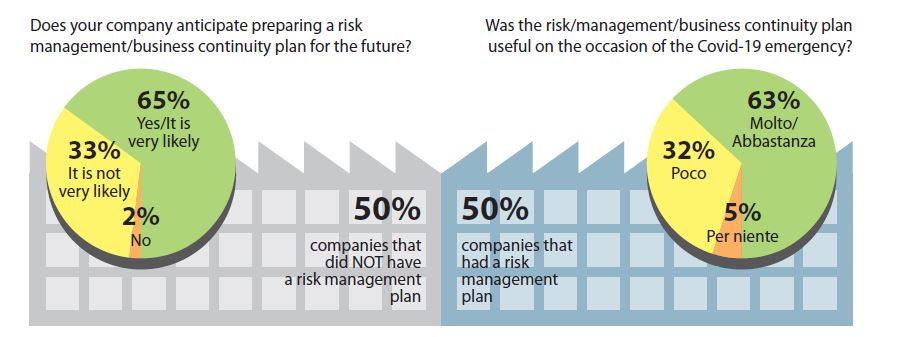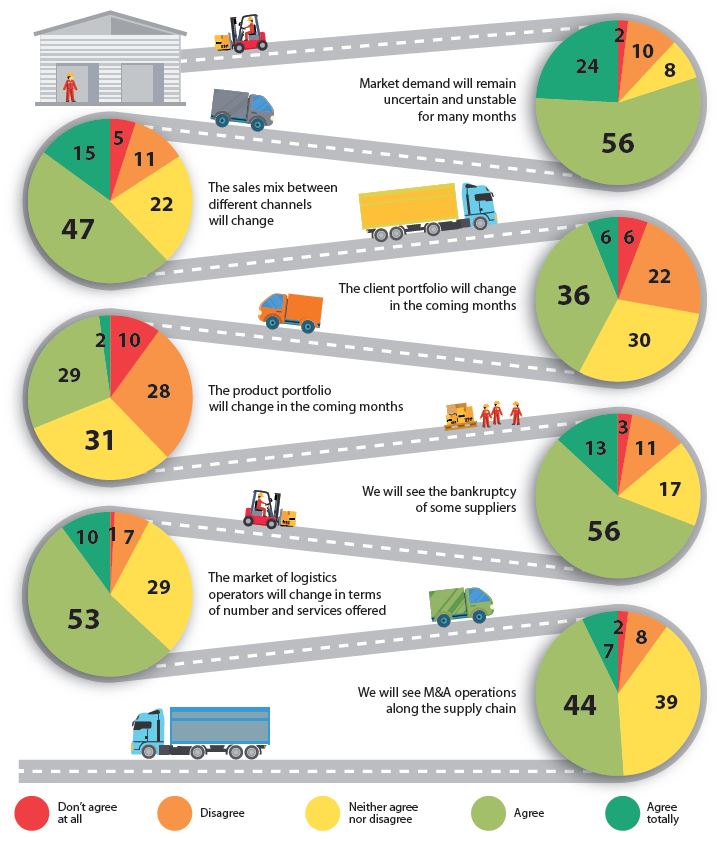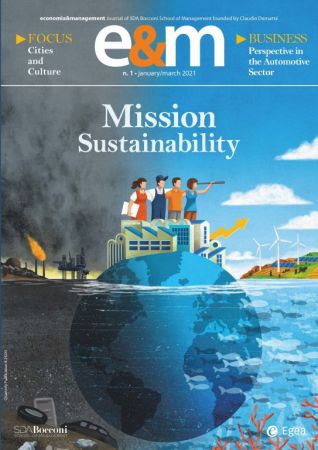E&M
2021/1
Operations and Supply Chains Tested by the Pandemic
In this difficult moment in history, the operations and supply chains of Italian companies have been sorely tried by the effects of the pandemic as never before. A survey conducted on almost 300 Italian companies belonging to various production sectors, photographed the situation of operations and supply chains during the first lockdown, and attempted to offer some predictions for the future.
In this difficult moment in history, the operations and supply chains of Italian companies have been sorely tried by the effects of the pandemic as never before. The difficulties are found on multiple fronts: from supplier deliveries to the management of stock and production capacity, from the attempt to honor debts with suppliers to delays in payment by clients, from the new modes of distance working to the massive use of temporary unemployment benefits, from the collapse of turnover to the difficult management of working capital. To photograph the situation of operations and the supply chain during the first lockdown, and to try to offer some predictions for the future, SDA Bocconi School of Management has conducted a survey of almost 300 Italian companies, belonging to various production sectors. Among the most significant data that have emerged, is that only half of the companies interviewed possessed a risk management and business continuity plan before March 2020, and that for 63 percent of the companies, it turned out to be a useful tool to face the effects of the health emergency (Figure 1). The companies involved in the survey are convinced that the consequences on the market and supply chains will still be visible for some time: for most of those interviewed, domestic demand will remain unstable for many months (80 percent); we will see a transformation of sales channels (62 percent) and the bankruptcy of some suppliers (69 percent); and there will be consequences on both client portfolios (42 percent) and product portfolios (69 percent) (Figure 2). Many companies need to make considerable efforts to change operations and supply chains, not only in terms of short and medium-term management and organization, but also as regards their future structure.
Figure 1 Presence of risk management and business continuity plans in Italian companies

Figure 2 The evolution of the market and supply chain

For a broader panorama of the future of operations and supply chain management and the results of the study, consult also the E&M Podcast on the subject prepared by Aristea Saputo and Francesco Gallmann, researchers at the Sustainability Lab and the Operations and Technology Lab, respectively, of the SDA Bocconi School of Management, which is available on E&M Plus.



